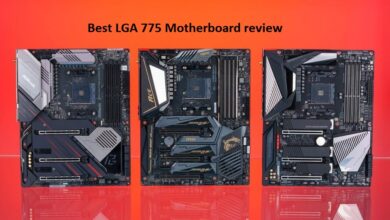Do you still remember Fuchsia OS, which Google has been developing for years? Based on its own Zircon kernel, it was perfectly suited to replace Android, which was based on the Linux kernel. However, sometime after the existence and potential purpose of Fuchsia OS became known to almost everyone, Google made a statement that the new operating system would not replace Android. Allegedly, it is actually a technical platform for testing and debugging new features. But apparently, Google has changed its mind about that.
Google has added a special add-on to Fuchsia OS called Starnix, which provides the operating system with native support for Android apps. Starnix is a kind of translator that allows one platform to understand and accept software that was originally designed for another platform.

Applications for Fuchsia OS
This wasn’t a possibility before, which basically led everyone to believe that Google had no goal to develop Fuchsia OS as a commercial platform. After all, if the operating system does not support software, then in all likelihood it will not attract the interest of users. However, the emergence of support for Android applications in Fuchsia OS increases its commercial appeal quite a lot.
That would be OK, but in addition, to support for Android apps, Fuchsia OS has a built-in mechanism for isolating these very apps. It allows the system to create several cells in memory according to the number of applications within which they run. The software cannot leave them, which in turn prevents one app from stealing data from another.
The app isolation in Fuchsia OS is essentially a counterpart to the Scoped Storage feature that appeared in Android 11 late last year. It gave user data an extra layer of protection. But while on Android this is a very important point, on a technical operating system it is unlikely to be of practical use. Unless Google plans to release it for commercial use.
Why Fuchsia OS is needed?
Fuchsia OS has really come a long way in recent years, evolving from the technical platform without an interface that it was, to a more or less usable operating system. It has a wide range of features, its own interface, support for Android apps, and a lot of security mechanisms. Could it be that Google really does have far-reaching plans for Fuchsia OS?

Although Google hasn’t made any announcements about Fuchsia OS, it’s clear that the company has moved into a new phase of testing the operating system. After all, it recently opened up Fuchsia OS to third-party developers, encouraging them to help it develop the platform. Speaking of which, the same thing happened with Android in its time. It is thanks to this that Google’s mobile OS today is what we know it to be.
So far, it’s hard to say definitively whether Google is really making plans to replace Android with Fuchsia OS. After all, these kinds of transitions are not made spontaneously and without a serious purpose. After all, if there is nothing wrong with Android, then Google has no logical reason to make the transfer. It’s a different matter if such reasons arise.
For example, if Android finally discredits itself. But since this is hard to imagine at this stage, Google obviously has no reason to replace one OS with another.



